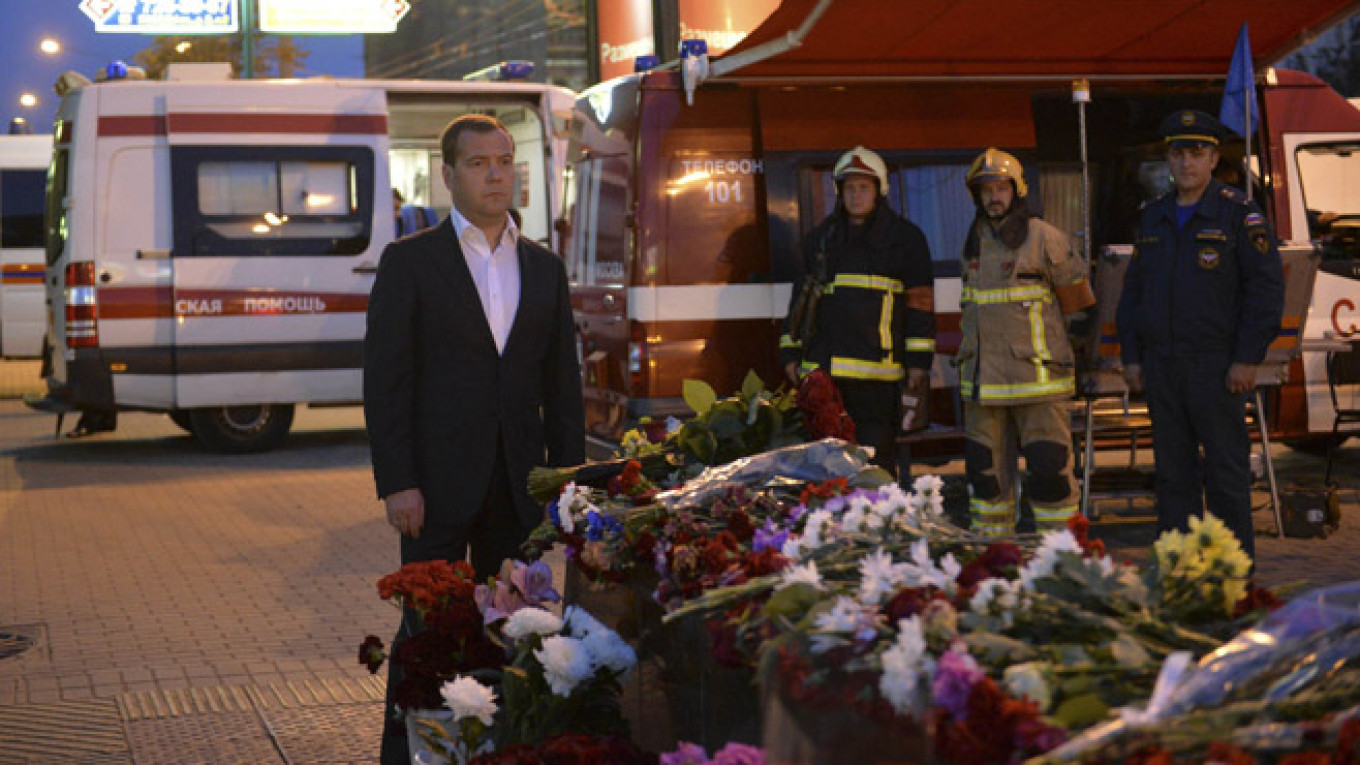Two days after a fatal derailment in the Moscow Metro that claimed the lives of 23 commuters and injured more than 160 others, investigators and transportation security experts are still debating the causes of the accident, the deadliest in the metro's 79-year history.
Three metro cars skidded off the tracks between the Slavyansky Bulvar and Park Pobedy metro stations on the Dark Blue Line during rush hour on Tuesday morning.
What Our Readers Think:
Following the disaster, how safe do you feel in the Moscow metro?
Alessandro Cerroni: I was really nervous yesterday in the metro trains … but, how they say, “the safest day to catch a flight is the day after a crash” … Anyway, so sad for what happened.
Zarminae Ansari: If i were still in Moscow, I would be on the metro simply because I love it and there is nothing like the Moscow metro ANYWHERE in the world. Stunning, spotless and efficient. The older lines were built well. My understanding is that these were more recent tracks built toward the end of the Soviet Union that had the problem.
Ruslan Mamedov: I feel safer, because now metro workers etc. will be more cautious. I am not afraid, but caught that I’m thinking “where is the safest place … is it safer to be among the people or somewhere in the corner … What should I do if the accident happens now?”
Laura Lopez: I feel unsafe. If all the trains in the dark blue line are “semi-new” what should be expected from older trains?
On Wednesday, Russia's Investigative Committee — which had announced it would examine potential electrical problems, a defect in a railway switch and structural issues in the tunnel as possible causes of the crash — had already narrowed down its investigation.
After having dismissed a terror act as a possible cause of the crash, the Investigative Committee said it thought the accident was caused by improper work on a railway switch between the stations, which had been fastened using improper wiring that could not withstand the passage of trains.
But the Investigative Committee's version of events has now been called into question in a report published by Kommersant on Thursday.
According to the report, skid marks on the concrete base of the tunnel as far as 50 meters from the crash site suggest that one or several objects lodged under the metro cars could have contributed to the derailment. Kommersant reported that this version of events was presented at a meeting of the Moscow authorities on Wednesday.
"Investigators will have to look into every theory," said Sergei Gruzd, the editor-in-chief of a periodical on transportation safety published by the Transportation Ministry. "We are still at a stage where nothing can be excluded. These types of investigations take time."
Two suspects, rail technicians Valery Bashkatov and Yury Gordov, responsible for overseeing the work on the railway switch, have already been detained and questioned regarding the accident, and they could face between four and 10 years in prison according to Russian law on the violation of transportation safety rules.
"Responsibility always has to be personalized," President Vladimir Putin said about the crash on Wednesday, adding that investigators would bring all those responsible to justice.
Vyacheslav Ilychev, the head of a panel set up by an institute specializing in underground structures to disclose the reasons behind the accident, told reporters that the tunnel had been inspected on the day of the accident, RIA Novosti reported. According to him, no irregularities had been recorded.
Ilychev's statement, which adds credence to the investigators' dismissal of structural issues in the tunnel as a cause of the crash, said that the tunnel would be re-inspected before service was allowed to resume.
Service on the Dark Blue Line between the Kievskaya and Molodyozhnaya stations is expected to resume on Friday.
See also:
Moscow Metro Workers Detained Over Fatal Crash
Contact the author at [email protected]
A Message from The Moscow Times:
Dear readers,
We are facing unprecedented challenges. Russia's Prosecutor General's Office has designated The Moscow Times as an "undesirable" organization, criminalizing our work and putting our staff at risk of prosecution. This follows our earlier unjust labeling as a "foreign agent."
These actions are direct attempts to silence independent journalism in Russia. The authorities claim our work "discredits the decisions of the Russian leadership." We see things differently: we strive to provide accurate, unbiased reporting on Russia.
We, the journalists of The Moscow Times, refuse to be silenced. But to continue our work, we need your help.
Your support, no matter how small, makes a world of difference. If you can, please support us monthly starting from just $2. It's quick to set up, and every contribution makes a significant impact.
By supporting The Moscow Times, you're defending open, independent journalism in the face of repression. Thank you for standing with us.
Remind me later.






